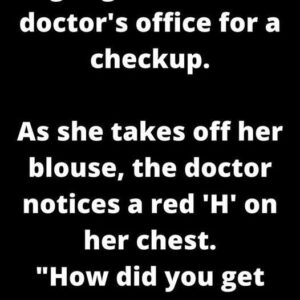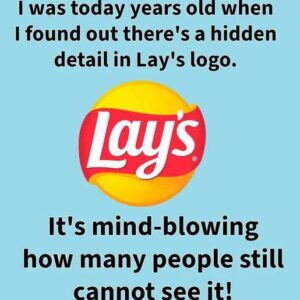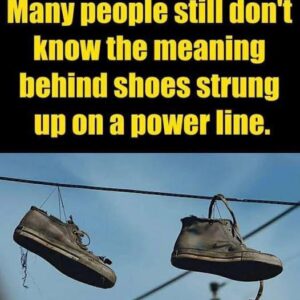I wore the blush-pink dress I’d been saving for something special. You know the one—soft pleats, delicate neckline, just enough shimmer to feel elegant, but not enough to draw attention. I baked his favorite banana bread that morning, just like I did when he was little and begged for extra slices while it was still warm.
I even buttoned that old cardigan with the tiny pearl accents—the one he used to say made me look like a sitcom mom from those black-and-white TV reruns we’d watch on rainy Saturdays.
I tried. Really, I did.
But when I walked into that wedding hall and saw that no one had saved me a seat near him, when I realized I’d been placed in the back with no title, no ribbon, no role—something shifted. Quietly. Deeply. And it wasn’t just about the wedding. It was about something far bigger.
Northern Michigan in Spring Is Quiet—But Not the Kind You Think
Where I live, the silence isn’t peaceful. It’s hollow. Empty.
Four winters ago, my husband Jack passed. I still sleep on my side of the bed. Still make two cups of coffee every morning out of habit. And our son—our only child—visits less and less. He calls sometimes. Sends a card on birthdays. But the closeness we once shared, that deep mother-son tether, seems to fray a little more with each passing year.
Some days, I sit on the front porch with a book in my lap, but I don’t read. I just listen to the wind slide through the pine trees and wait for the mail truck to rumble down the gravel road. More often than not, it drives past without stopping.
And I wonder if somewhere nearby, another woman is pretending not to hope for a letter that never comes.
The Call That Changed Everything—And Nothing at All
Three weeks ago, Tyler called. He sounded rushed, distracted. But there was a lilt in his voice—he was excited.
“Getting married,” he said. “Her name’s Rachel.”
He talked about the venue, something “simple but elegant.” When I asked about the date, the colors, the plans—his answers were short, clipped. I asked if they needed help—cake, decorations, the guest list.
He told me not to worry. Rachel had it covered.
I offered to bake the pie for the rehearsal dinner. He paused.
“That’s sweet, Mom,” he said.
And that was it.
When the call ended, I stared at the phone for a long time, the silence in the room suddenly deafening. I felt like I had been given a part in a play I thought I was helping write—but now I was just… a supporting character, at best.
Still, I held on to hope.
Holding Out Hope—Even When You Know Better
I laid out the dress the night before, pressing the creases smooth. Packed the banana bread in a tin, wrapped in wax paper. I even polished my shoes, just like I used to when Jack and I went dancing in our younger years.
Some small part of me still believed that this wedding might bring us closer again, that I’d see my son and he’d see me—not just the mother who raised him, but a woman still waiting to be remembered.
But the truth is, heartbreak doesn’t always arrive with slammed doors and angry words.
Sometimes it arrives dressed as politeness. It shows up in tiny omissions. It whispers, not shouts.
No Ribbon. No Role.
I arrived early. Always do.
The girl at the check-in table smiled, pleasant and generic. She handed me a small name tag that read: Margaret Bell. No “Mother of the Groom.” No gold ribbon. Just black text on a sticker.
I clipped it on, tried not to let the sting show on my face.
Inside, the room buzzed. Laughter and music floated above the clinking of champagne glasses. People I didn’t recognize exchanged hugs and smiles, and I scanned the crowd for Tyler.
I saw him eventually. Near the front. Arm around Rachel. Surrounded by new family, old friends.
He didn’t see me.
A young man with a headset appeared by my side. Clipboard in hand, he looked efficient and kind.
“Right over here, ma’am,” he said, gesturing to a small table tucked away in the corner.
I looked around. The closer tables bore elegant signs:
Groom’s Friends. Bride’s Family. Maid of Honor’s Parents.
Mine? Just Margaret.
No last name.
No mention of my role.
No acknowledgment that I once taught him how to tie his shoes, held his hand during stomach flus, stayed up late editing college essays, or packed his moving boxes when he left for the city.
I was simply… there.
A Thousand Quiet Cuts
People think heartbreak is loud. But most often, it’s a quiet unraveling.
It’s the absence of a title. The absence of a reserved chair. The absence of your child turning to find your eyes in the crowd.
And when I sat down at that table in the back—behind pillars and flower arrangements—I realized: I wasn’t really invited to be part of his new life. Just allowed to witness it.
I smiled when the vows were read. Clapped when they kissed. Nodded at the toasts.
But inside, I was somewhere else. Replaying every school play I ever sat through in the front row. Every scraped knee I kissed. Every “I love you, Mom” that now felt like a lifetime ago.
What We Leave Behind
I don’t blame him, not really. Tyler’s a good man. He was always kind, always thoughtful. But life moves fast, and the people who raised us sometimes become shadows in the rush of adulthood.
I suppose this is what letting go looks like—not a dramatic exit, but a slow stepping back. A quiet acceptance.
I left the banana bread in the catering kitchen. Never heard if it made it to the dessert table.
Drove home the next morning, windows down, the lake glinting in the distance.
And when I got home, I folded the dress and tucked it back into the garment bag. I put the cardigan away. Sat on the porch and waited for the mail truck. It didn’t come that day.
But I still waited.





